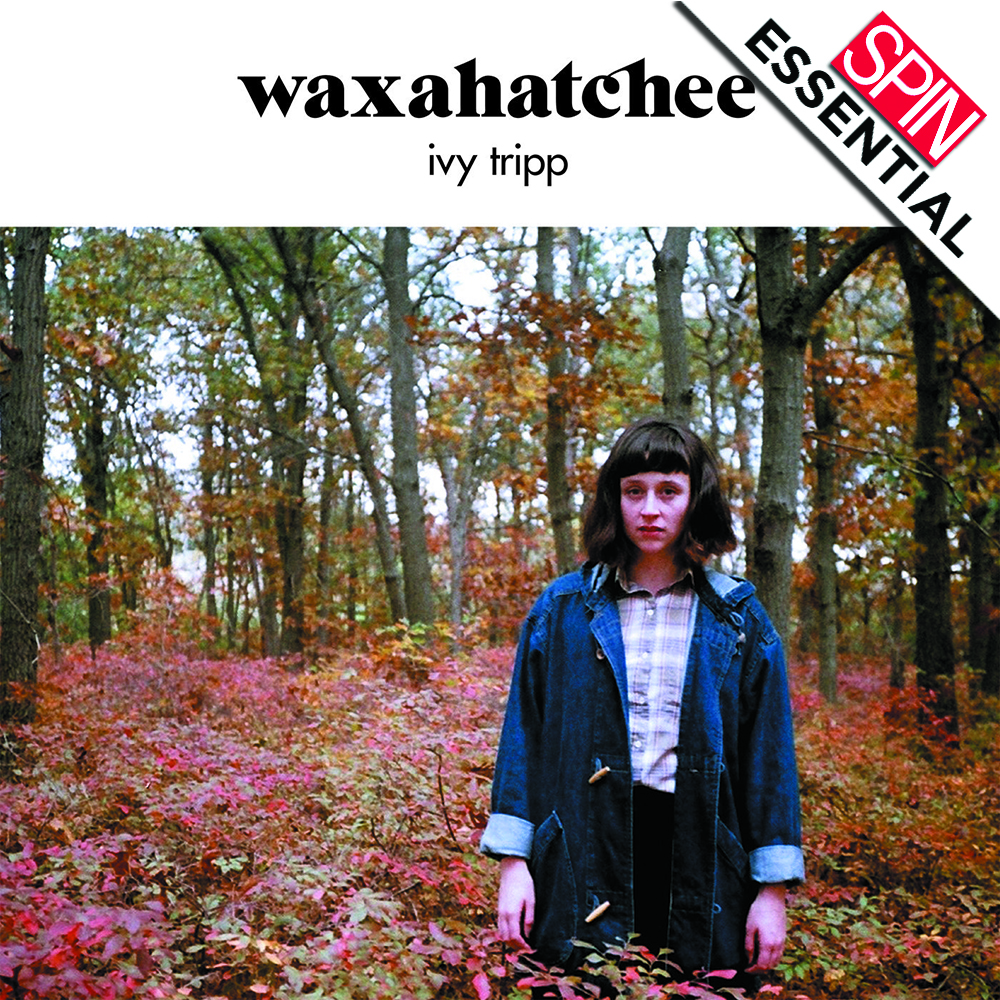Release Date: April 07, 2015
Label: Merge
Katie Crutchfield’s career arc with her solo project, Waxahatchee, is predicated on incremental growth: records released by progressively larger labels, music recorded in increasingly higher fidelity, songs augmented by slightly expanded instrumentation. This slow-and-steady momentum suits the Birmingham, Alabama native’s songwriting, which relies not on grand proclamations, but on expressions of intimate emotional turmoil and ornate self-analysis.
Ivy Tripp — Waxahatchee’s third full-length and first for major indie Merge — is certainly Crutchfield’s biggest leap forward to date, at least musically. Although the record is no less sparse than her previous albums, it boasts far more diverse instrumental detail: static-fuzzy distorted keyboard drone (the molasses-viscous daydream “Breathless”); wistful piano (“Half Moon”); lullaby-like organ (“Stale By Noon”); and a cheerful drum machine (“La Loose”). Each of these additions is purposeful, whether it’s to underscore the skepticism that a romance could be real and stable on “Breathless,” or adding levity to the hints of madness on “La Loose.” Crutchfield is just as deliberate with her vocal embellishments — harmonizing with herself, layering complementary (if disparate) melodies over one another, echoing lines of a verse at a slightly higher interval.
Despite more intricate arrangements and a broader palette of sounds, Ivy Tripp is a perfectly logical progression along the Waxahatchee continuum. This is largely because Crutchfield’s co-producers/collaborators are Kyle Gilbride and Keith Spencer, the same musicians she worked with on 2013’s Cerulean Salt. (The pair are also members of Swearin’, the band featuring Katie Crutchfield’s twin sister Allison.) The trio knows exactly when to give a song breathing room — skeletal, acoustic highlight “Summer of Love,” the minimalist, melancholy “Blue” — and when a noisier treatment makes sense. On the latter moments especially, Ivy Tripp feels more put-together without being remotely polished; the brisk, grungy “The Dirt” recalls the Vaselines, while “Under a Rock” blooms into a ’90s alt-rock stunner reminiscent of Juliana Hatfield or Belly. And the elliptical, bewitching “<” (which boasts the repeating lyric, “You’re less than me, and I am nothing”) ends in a tangled heap of off-key guitars, frayed like the musicians are banging out chords on broken strings.
Crutchfield has always been an economical writer, but on Ivy Tripp she particularly excels at sketching out just enough details to make her intentions clear, while leaving enough space to let listeners draw their own conclusions. The keening, keyboard-clouded “Air” examines a messy, imperfect relationship whose inhabitants are both drawn to and repelled by each other. It’s never clear what’s causing the apathy and uncertainty, only that (as she puts it) “You were patiently giving me everything that I will never need.” Equally murky are the circumstances surrounding “Summer of Love”; she takes responsibility for her emotional pain (“I didn’t think, now I’m here / Treading water without you”) and acknowledges the end of a romance (“The summer of love is a photo of us”), but only brings listeners into the fairy tale at the bitter end.
Still, Ivy Tripp cements that Crutchfield is better able to hone in on her fears and articulate emotional realities. “Grey Hair” is a deeply conflicted rumination on success and ambition as it pertains to a musical career; the song is equal parts paralyzed, enthralled and terrified by the thought of widespread popularity. And on “Half Moon,” there’s a hint of sandpaper roughness in Crutchfield’s voice, as the song’s protagonist realizes the harsh truth that relying on the past — a poisonous romantic foil, a wrenching piece of art, the support of an old friend — is an impediment to progress. Only by acknowledging (and then letting go of) habits and precedent allows for forward motion: “The pain that you make never dies / I hung it up in a wistful disguise.” On Ivy Tripp, Crutchfield is doing something similar; she hasn’t cut her sadness loose or resolved every uncertainty — but she’s better equipped to wrangle (and overcome) the turbulence.





